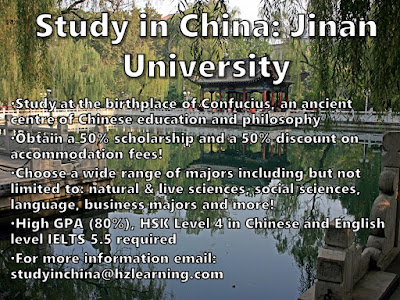What is it like to spend Christmas and New Year in China?

Celebrating Christmas
Sometimes to outsiders, there are some misconceptions about spending Christmas in China. Because of the country's government and politics, it is often believed that Christmas is banned, restricted or oppressed. Whilst it is true that China is officially an atheist state which advocates socialism, nevertheless the religious beliefs of citizens are tolerated and given respect within the boundaries of the law. One may go through a mall at Christmas time and see all kinds of Christmas trees, decorations and popular songs. Without a doubt, the cultural presence of the holiday exists within the country, even if it is not grounded in China's traditions.
This cultural interest in Christmas has been encouraged by the increasingly consumerist nature of the holiday in the west, which has become less about religion and more about gifts, shopping and good food. To many Chinese people, this is both fun and exciting, even if they have little to no belief in the religious side. This interest in Christmas extends to the realm of public activities. Just recently in 2018, a public fun took place in Chaoyang Park, Beijing, where hundreds of participants dressed as Santa Claus.
For foreign expats living in China, there are a number of opportunities to get together and celebrate Christmas as a group. There are still churches running Christmas services throughout the country, whilst there are often a number of gatherings, parties and meals organised at various establishments especially for those celebrating the holiday. If you look around carefully, the opportunities are ample! Even if the cultural environment is different, there is no need to feel lonely, isolated or out of place during Christmas time!
Moving on, new year time carries much more interest in China. Described in Chinese as "元旦节" (Yuan Dan Jie), the term has been used in the country for over 5000 years. Like everywhere else in the world, this day is celebrated with good food, partying and gifts. This should not be confused with what is otherwise known as "Chinese new year", often called "Spring festival" 春节 and occurs in February, commemorating the start of the lunar calendar.
Still, the new calendar year has some significance in China. On Yuandan, big events are often held which attract thousands of spectators. For example, elaborate firework displays at the bund in Shanghai, Hangzhou's lake or the temple of heaven complex in Beijing. Either way, new year's eve promises to be a vibrant, bustling and exciting experience for foreigners in China which promises plenty fun and things to do, be it with locals or other expats.
Celebrating New Year
Moving on, new year time carries much more interest in China. Described in Chinese as "元旦节" (Yuan Dan Jie), the term has been used in the country for over 5000 years. Like everywhere else in the world, this day is celebrated with good food, partying and gifts. This should not be confused with what is otherwise known as "Chinese new year", often called "Spring festival" 春节 and occurs in February, commemorating the start of the lunar calendar.
Still, the new calendar year has some significance in China. On Yuandan, big events are often held which attract thousands of spectators. For example, elaborate firework displays at the bund in Shanghai, Hangzhou's lake or the temple of heaven complex in Beijing. Either way, new year's eve promises to be a vibrant, bustling and exciting experience for foreigners in China which promises plenty fun and things to do, be it with locals or other expats.



评论
发表评论